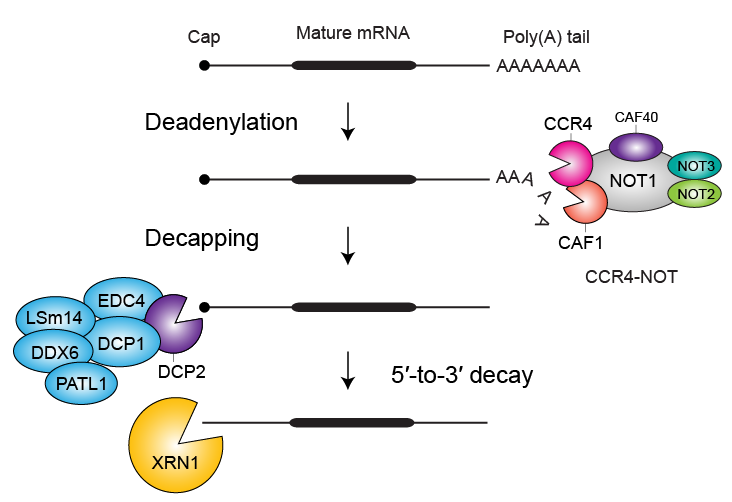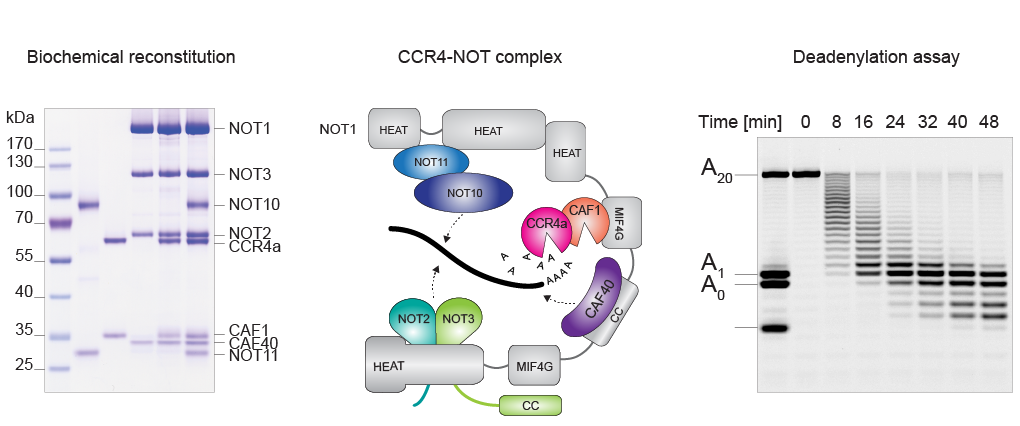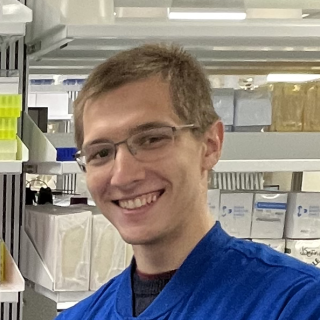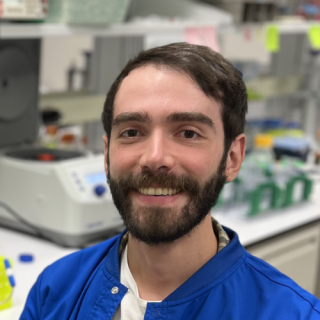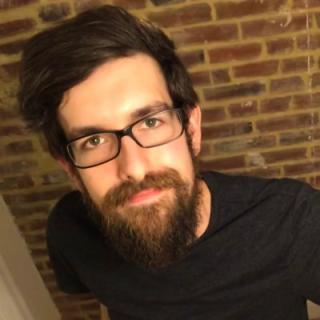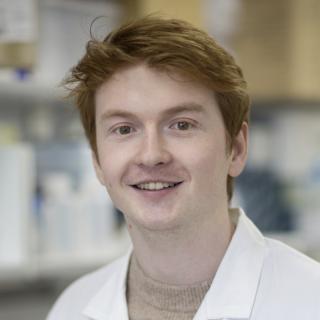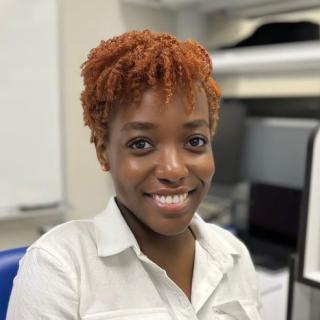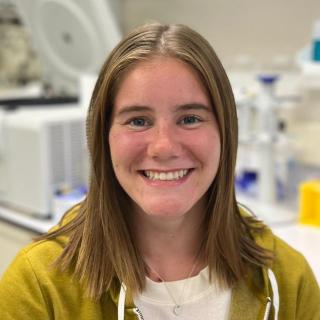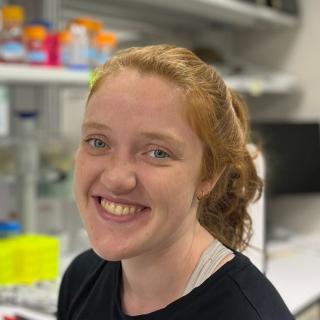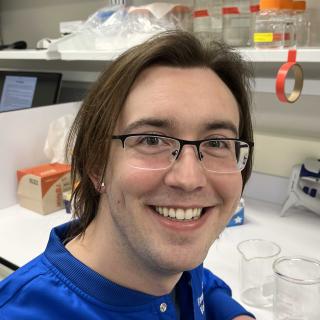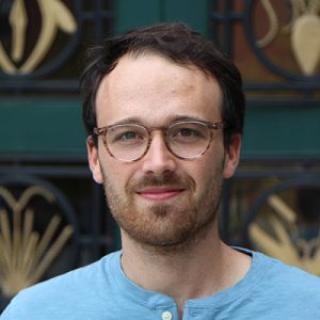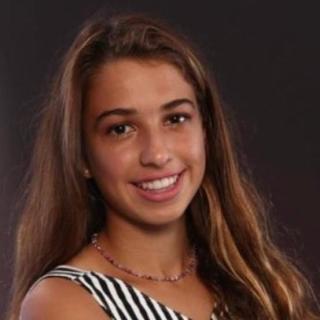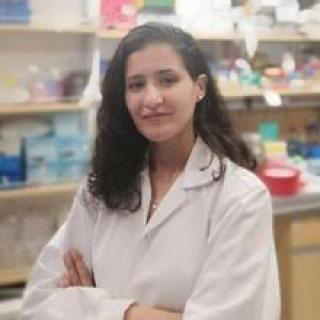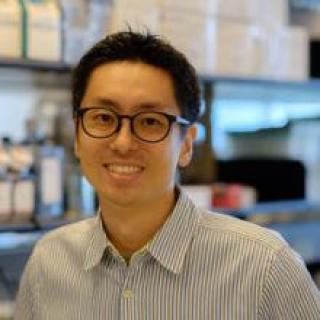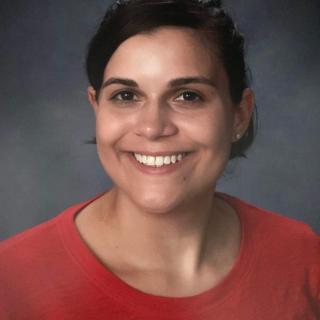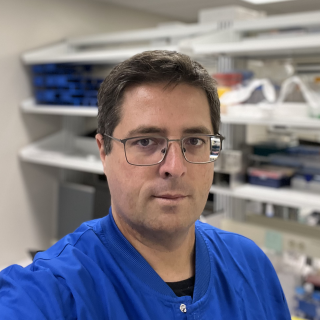
Eugene Valkov, D.Phil.
- Center for Cancer Research
- National Cancer Institute
- Building 560, Room 11-83C
- Frederick, MD 21702
- +1 (301) 846-1823
- eugene.valkov@nih.gov
RESEARCH SUMMARY
What determines the fate of mRNA at the end of the gene expression pathway? Our approach to exploring this question involves studying reconstituted systems through biochemistry and structural analysis. This strategy allows us to formulate detailed models of the interactions and mechanisms involved. We have developed methods for the recombinant production and biochemical characterization of numerous human factors and complexes crucial to regulating mRNA. Our tools include high-resolution imaging by cryo-EM and computational approaches using machine learning, complemented by thorough biochemical validation of interfaces and biophysical measurements of affinity, stoichiometry, and kinetics of interactions. While our research focuses on fundamental biological phenomena, which are key to all eukaryotic life, we have begun applying our expertise and unique tools towards assisting the development of the next generation of RNA-based therapeutics for cancer treatment.
Areas of Expertise

Eugene Valkov, D.Phil.
Research
The scientific goal of the laboratory is to study the events that determine the molecular ‘fate’ of mRNA in the cytoplasm. We focus on the mechanisms that regulate the removal of structures that protect mRNA from degradation: the poly(A) tail at the 3′-end, in a process known as deadenylation, and the 7-methylguanylate cap at the 5′-end, or decapping. We wish to understand what determines the specificity of these processes and their integration with other stages of the gene expression pathway.
Our principal approach to studying these molecular events is to reconstitute the relevant regulatory macromolecular complexes from highly purified recombinant components and to study them in vitro. To this end, we employ biochemical assays and biophysical approaches to study the interactions between the components using the instrumentation and facilities available at the Biophysical Resource, part of the Center for Structural Biology. To gain a deeper appreciation of the molecular mechanism, we extensively collaborate with our colleagues at the Center for Structural Biology to determine high-resolution cryoEM structures by single-particle analysis using the data collected on the Titan Krios and Talos Arctica microscopes. Among our recent achievements is the reconstitution of the complete human CCR4-NOT deadenylation complex and the entire network of principal human decapping factors. These unique biochemical tools and reagents enable us to study the 5′-to-3′ mRNA decay pathway with unprecedented precision and control.
To relate biochemical and structural insights to function, we test our derived hypotheses directly in human cells; for example, by complementing different variants in cell lines where the expression of individual molecular factors has been knocked out by CRISPR gene editing. This approach has proved very powerful in validating and mapping interactions in vivo. We use high-throughput short-read sequencing with bioinformatic analysis to survey cellular transcriptome and translatome dynamics. We also employ long-read direct RNA sequencing approaches to study mRNA metabolism using Oxford Nanopore instruments available at the RNA Biology Laboratory. A long-standing goal of the laboratory is to achieve sufficient understanding to rebuild entire functionally-relevant regulatory processes of mRNA decay in a test tube. Such a platform offers a unique toolkit to optimize mRNA-based therapeutics for stability and expression and to introduce new design features to target cancer more effectively.
Relevance to Cancer
Dysregulation of posttranscriptional control contributes to autoimmune disease, neurodegeneration, and especially toward oncogenic transformation. Our research is focused on the fundamental biological discovery, which is vital for progress in addressing urgent challenges of age-related diseases. Improved mechanistic understanding of the turnover and translation of mRNA holds enormous potential to provide immediate new vantage points for therapeutic intervention in tumor progression and metastasis.
Publications
Deadenylation: Methods and Protocols
Biography
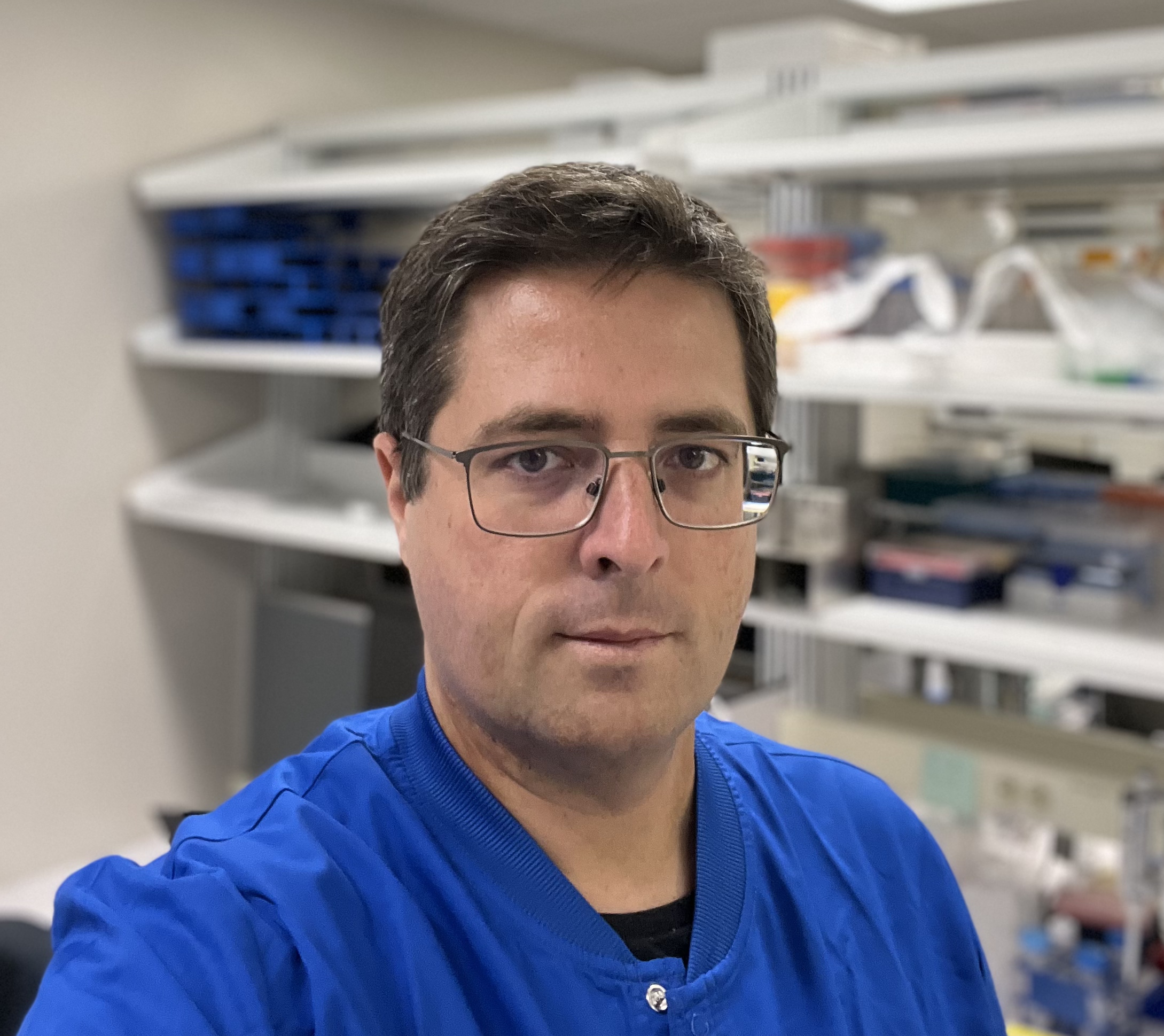
Eugene Valkov, D.Phil.
Eugene received his bachelor's degree in molecular biology from the University of Portsmouth in the UK, graduating with first-class honors. He then pursued a doctoral degree in molecular biophysics at the University of Oxford. After completing a postdoctoral fellowship in Australia, Eugene returned to the UK to conduct his principal postdoctoral research at the MRC Laboratory of Molecular Biology in Cambridge. There, he studied the molecular mechanisms of mRNA export while working with Murray Stewart and also collaborated with Lori Passmore on structural studies of mRNA decay machinery. In 2014, Eugene joined the Max Planck Institute in Tübingen, Germany, as a staff scientist to work with Elisa Izaurralde. Three years later, in 2017, he was promoted to group leader at the same institute. In 2019, he was recruited as a Stadtman Investigator at the NCI's newly established RNA Biology Laboratory.
Job Vacancies
Who we are
- A basic research laboratory seeking to address outstanding mechanistic questions in RNA biology.
- Part of the NIH Intramural Program, a unique research environment supported by stable, generous core funding.
Among the 250 basic and clinical research labs comprising the Center for Cancer Research, the research division of the National Cancer Institute.
What we offer
- A lab culture that promotes research excellence in a diverse and supportive research team.
- US citizens and permanent residents are recruited via the Cancer Research Training Award (CRTA).
- International applicants are recruited via the NIH Visiting Fellow Program.
- Compensation is the same for CRTA and Visiting Fellows. The CRTA Manual provides all information on stipends and benefits.
- For out-of-state or international trainees, we offer help with moving expenses up to $3,000.
- Collaboration opportunities with leading academic groups and partners in the pharmaceutical/biotech industry.
- Free or subsidized access to world-class core research facilities and instrumentation, such as the Titan Krios G4 cryo-EM.
- Interaction opportunities with exceptional basic scientists and clinicians at the NIH.
- Opportunities to present your work and network at the NIH and international conferences.
- Strong focus on individual mentoring, developing research expertise, acquiring transferable skills, and career development.
Professional assistance and support with J1 or H1 visa applications for international scientists at the Division of International Services.
- Further information about training at the NIH and associated benefits.
Looking to join us?
At the postbaccalaureate level, you will have:
- An excellent GPA in biochemistry, molecular biology, chemistry, or a related science major.
- Enthusiasm for research and science.
- Willingness to learn.
- Demonstrated ability to work in a team.
- Strong organizational skills.
- Some experience in a research lab can be beneficial but not essential.
At the postdoctoral level, you will have:
- An open, sharing approach to research and enthusiasm for team science.
- Desire to make cool discoveries and tackle fundamental questions in RNA biology.
Willingness to think outside the box and step out of your comfort zone.
- A Ph.D. in biochemistry, structural biology, or molecular biology.
First/co-first-author publication or a preprint.
To inquire about opportunities, please email eugene.valkov@nih.gov and include your CV, contact details for 2-3 referees, and a one-page statement describing your research experience and why you want to join the lab.
We also welcome inquiries from prospective graduate students seeking a rotation spot in the NIH Graduate Partnerships Program.
If you are an undergraduate or a high school student, consider joining us via the Summer Internship Program in Biomedical Research.
Team
News
April, 2024. Together with Alicia Bicknell and colleagues at Moderna, we show that high ribosome loads result in less overall protein output from therapeutic mRNAs due to increased translation-dependent mRNA decay. The implication is that modulating the translation initiation rate to achieve moderate ribosome loads and longer mRNA lifetimes can improve the efficacy of therapeutic mRNAs. Yevgen tested the 3' stabilizing mRNA modification in our in vitro deadenylation system. Out now in Cell Reports.
April, 2024. Our collaborative work with Jernej Murn and other colleagues is now out in Nature Communications. We investigated the molecular mechanism of an RNA-binding protein, Unkempt, and its interactions with CCR4-NOT and PABPC1 in regulating translation and cell polarization. From our lab, David characterized Unkempt interactions in vitro; Josh established the purification of full-length Unkempt and carried preliminary assays; Khadija performed some of the mRNA poly(A) tail analysis using Nanopore.
February, 2024. Our study on deadenylation kinetics, done in collaboration with Narry Kim's group, was published in Nature Structural & Molecular Biology. We quantitated the effect of the incorporation of non-adenosines in mRNA poly(A) tails, or 'mixed tailing,' which has been observed in vertebrates and viruses, by developing an analytical framework to monitor deadenylation single-nucleotide resolution using an in vitro deadenylation system reconstituted with the complete human CCR4-NOT complex. This study reveals the molecular basis of tail sequence-dependent regulation of mRNA stability, which has implications for improving mRNA-based vaccines and therapeutics. Yevgen performed all the experimental work in this study.
February, 2024. Tanner Myers joined us as a postdoc after completing his doctoral work on bacterial ribonucleases with Wade Winkler at the University of Maryland. Welcome, Tanner!
December, 2023. Eugene gave a seminar at the SickKids Hospital in Toronto. Thank you to Julie Forman-Kay for the invitation and the opportunity to learn about all the great work done at SickKids.
October, 2023. Deadenylation: Methods and Protocols, co-edited by Eugene and Aaron Goldstrohm. Yevgen and Filip contributed a chapter each. Many thanks to all the leading laboratories in the field for contributing their latest methods and expertise!
September, 2023. Filip was awarded a postdoctoral fellowship from the German Research Foundation (DFG) as part of the Walter Benjamin program. Many thanks to the reviewers for their very kind comments, including "I cannot imagine a better place to carry out the proposed project" and "I rate this proposal among the top 5% and recommend funding with highest priority for a period of 24 months.“ Congrats, Filip!
August, 2023. Our summer intern, Keiko, left the lab to continue her undergraduate studies at the University of Maryland. Good luck, Keiko, with your studies, and we hope to see you again soon!
August, 2023. Annie Corbett and Claire Piczak joined the lab as postbacs. Both will work on biochemical and structural studies of RNA-binding proteins. Welcome, Annie and Claire!
August, 2023. The NIGMS funded our collaborative R01 grant with Aaron Goldstrohm on mRNA regulation by human Pumilio proteins. The NCI/CCR provided supplementary funding for our requested resources via a unique mechanism that seeks to promote intramural/extramural collaboration.
July, 2023. Cryo-EM structures of human and chicken NOT1:10:11 ternary subcomplexes of CCR4-NOT are published in Communications Biology. Thanks to all, especially our collaborators Susan Lea and Justin Deme, for introducing us to cryo-EM! Yevgen and Filip prepared the samples.
July, 2023. Jade Witter joined the lab as a postbac and part of the NCI Intramural Continuing Umbrella of Research Experiences (iCURE) program. Jade will work on a collaborative project with Jay Schneekloth's group at the Chemical Biology Laboratory. Welcome, Jade!
July, 2023. Wataru left the lab to join Daniel Kiss as a staff scientist at Houston Methodist Research Institute. Thanks, Wataru, for your hard work and contributions, and we wish you the best in your future endeavors.
June, 2023. Keiko Luke, an undergraduate student in biological sciences at the University of Maryland, joined the lab as part of the Summer Internship Program to get some research experience. Welcome, Keiko!
May, 2023. Filip's study of RBP-directed deadenylation is published in Nucleic Acids Research — part of this work Filip carried out with us at the NCI. Congrats, Filip, on your first first-author publication!
April, 2023. Leah accepted an offer to join Jan Lowe's lab as part of the International PhD Program at the MRC Laboratory of Molecular Biology in Cambridge, U.K. Congrats, Leah!
March, 2023. Eugene gave a seminar at University of California at Riverside. Thank you to Ted Karginov, Jernej Murn, Sihem Cheloufi, and all the staff and students at UC Riverside for a wonderful visit and for sharing their science!
March, 2023. Yevgen was among two students recognized this year with the Center for Cancer Research Outstanding PhD Student Award for his stellar doctoral work on the biochemistry of the human CCR4-NOT complex. Congratulations, Yevgen!
March, 2023. Khadija left the lab to return to her family in Morocco. Thanks, Khadija, for all your contributions to several projects, and we wish you the best in your future endeavors.
December, 2022. Adrianna left the lab to pursue a medical degree at the University of Queensland, Australia. Best of luck with your medical studies, Adrianna!
December, 2022. Yevgen defended his Ph.D. thesis virtually at the University of Tübingen, Germany, with an overall mark of 1.0 and a distinction of Magna Cum Laude. Many thanks to the chair of the committee, Professor Dirk Schwarzer, and the members of Yevgen's thesis committee, Professors Thilo Stehle and Ralf-Peter Jansen, for their time and support throughout the years.
December, 2022. Eugene gave an invited lecture at Ohio State University in Columbus, Ohio. Many thanks to Mike Kearse for the kind invitation and to all the staff and students at Ohio State for a great visit!
December, 2022. The Current Opinion in Structural Biology collection on Protein Nucleic Acid Interactions (2022), where Eugene served as a Guest Co-Editor, is published.
October, 2022. Eugene gave an invited lecture at Moderna headquarters in Boston, Massachusetts. Many thanks to Alicia Bicknell and her colleagues for a kind invitation and a great visit. We look to working together to help develop future mRNA-based therapeutics!
July, 2022. Adrianna obtained a Cancer Research Training Award (CRTA) from the NCI Intramural Continuing Umbrella of Research Experiences (iCURE) program. Congrats, Adrianna!
June, 2022. Eugene gave an invited talk and chaired a session at The Post-transcriptional Control of Gene Expression Conference on RNA Decay in Jupiter, Florida. Work on deadenylation kinetics was presented.
June, 2022. Eugene joined the Editorial Board of the Journal of Structural Biology and Journal of Structural Biology: X.
May, 2022. Josh left the lab to begin his graduate studies at Harvard. Thanks, Josh, for your enthusiasm, good humor, and many contributions!
April, 2022. Josh accepted an offer to join the PhD program at Harvard University. After rotating through the program, he joined Jeeyun Chung's lab in the Department of Molecular & Cellular Biology. Congrats, Josh!
April, 2022. Filip Pekovic joined the lab as a postdoc. Filip obtained his PhD from Martin Luther University Halle-Wittenberg in Germany, where he biochemically reconstituted the Drosophila CCR4-NOT complex and studied its regulation by RNA-binding proteins Nanos and Smaug, working with Elmar Wahle. With us, Filip will be working on a collaborative project with Perry Blackshear's group at the NIEHS.
February, 2022. Eugene successfully presented the lab's research accomplishments and plans for the future to the NCI/CCR leadership during the Interim Tenure-Track Review. The concluding assessment from the CCR Director was as follows: "Overall, the review committee was highly impressed with Dr. Valkov’s projects and his progress in establishing an innovative research program. He demonstrated full command of his projects and deep knowledge of the field, which guides many of his projects by identifying the most pressing issues. The questions he is addressing are highly mechanistic, his approaches are cutting-edge and innovative and his experiments are simple, but elegantly designed and impeccably executed. Given that these experiments were done by several members of his lab, he is clearly a strong mentor. Overall, it was felt that Dr. Valkov is well positioned to make meaningful contributions to the RNA processing field and it is clear from his invitations to meetings, and as a reviewer and editor that he is very well respected in the field already. "
December, 2021. Our collaborative study with Georg Stoecklin's group at Heidelberg University, Germany, has been published in Nature Communications. The study describes the functional consequences of the interaction between the RING-type E3 ubiquitin ligase RNF219 and the CCR4-NOT complex. Josh, trained and aided by Yevgen, led the collaboration from our lab and performed all the in vitro assays and protein-protein pulldown assays in the paper.
November, 2021. Wataru was awarded a postdoctoral fellowship from the Japanese Society for the Promotion of Science as part of the Kaitoku-NIH program to support his research. Congrats, Wataru!
November, 2021. Eugene joined the newly established Center for Structural Biology as an Adjunct Investigator. Thank you to Susan Lea for the very kind invitation to collaborate more closely with the Center investigators and participate in its activities, such as the seminar series.
October, 2021. David Turner joined the lab as a postdoc. David obtained his PhD from the University of Cambridge, U.K. He performed his graduate research with Martin Turner at the Babraham Institute, where he designed and generated custom sgRNA libraries targeting RNA-binding proteins to facilitate CRISPR/Cas9-mediated gene knockout screens to identify novel roles for these RBPs. He identified and validated a role for YTHDF2 in promoting terminal B cell differentiation, and in our lab, he will focus on exploring molecular mechanisms of RBPs in mRNA regulation.
August, 2021. Adrianna Hernandez joined the lab as a postbac. She will improve her research skills and then pursue a medical career. The NIDDK provides 50% support for her position, and she will work on a collaborative project with Astrid Haase's group at that institute.
June, 2021. Ilayda Sen, an undergraduate at Ohio State, joined the lab for a month as a virtual summer intern (virtual due to COVID restrictions). She participated in preparing and analyzing RNA sequencing data while working with Khadija.
January, 2021. Leah Pitman joined the lab as a postbac. She will work on a collaborative project with Richard Maraia's group at the NICHD on mRNA regulatory mechanisms and RNA-binding proteins.
June, 2020. Khadija Rebbani joined the lab as a senior postdoc (research fellow). Khadija previously worked at the Cancer Science Institute, part of the National University of Singapore. With us, she will bring her expertise in molecular biology and cellular techniques to help us test mechanistic hypotheses in cells and establish this expertise in the lab. Due to COVID restrictions, Khadija's physical start in the lab has been delayed several months.
April, 2020. Eugene returns to the lab (alone) to produce and purify recombinant SARS CoV-2 Spike protein to support COVID-19 research efforts at the NIH.
March, 2020. Maryland declares a state of emergency and catastrophic health emergency to control and prevent the spread of COVID-19 within the state. The NIH shifts non-mission-critical laboratory operations to a minimal maintenance phase, and a long period of pandemic restrictions and teleworking begins.
February, 2020. Eugene gave an invited seminar at the NIEHS in North Carolina. Thanks to Traci Hall for the very kind invitation and for hosting! I learned much about the wonderful work on that NIH campus and met many new friends and colleagues.
November, 2019. Yevgen Levdansky finally makes his way stateside from Max Planck Institute in Tübingen, Germany, to continue his PhD and begin a new phase of his life and career!
December, 2019. Eric Simko joined the lab as a postdoc. Eric was previously a PhD student at Johns Hopkins University, where he worked with Jiou Wang on the characterization of the interaction between paraspeckle protein NonO and long non-coding RNA Neat1. Eric is interested in the molecular mechanisms regulating the 5' end of the mRNA in our lab.
October, 2019. Josh Corbo joined the lab as a postbac and helped set it up and running!
August, 2019. Eugene arrived in the US and joined the NCI as a Stadtman tenure-track investigator. The Messenger RNA Regulation and Decay section of the RNA Biology Laboratory, a.k.a. the Valkov Lab, is officially inaugurated!
Alumni
Lab Life
Lab retreat at Greenbrier State Park, Maryland, in the spring of 2022.
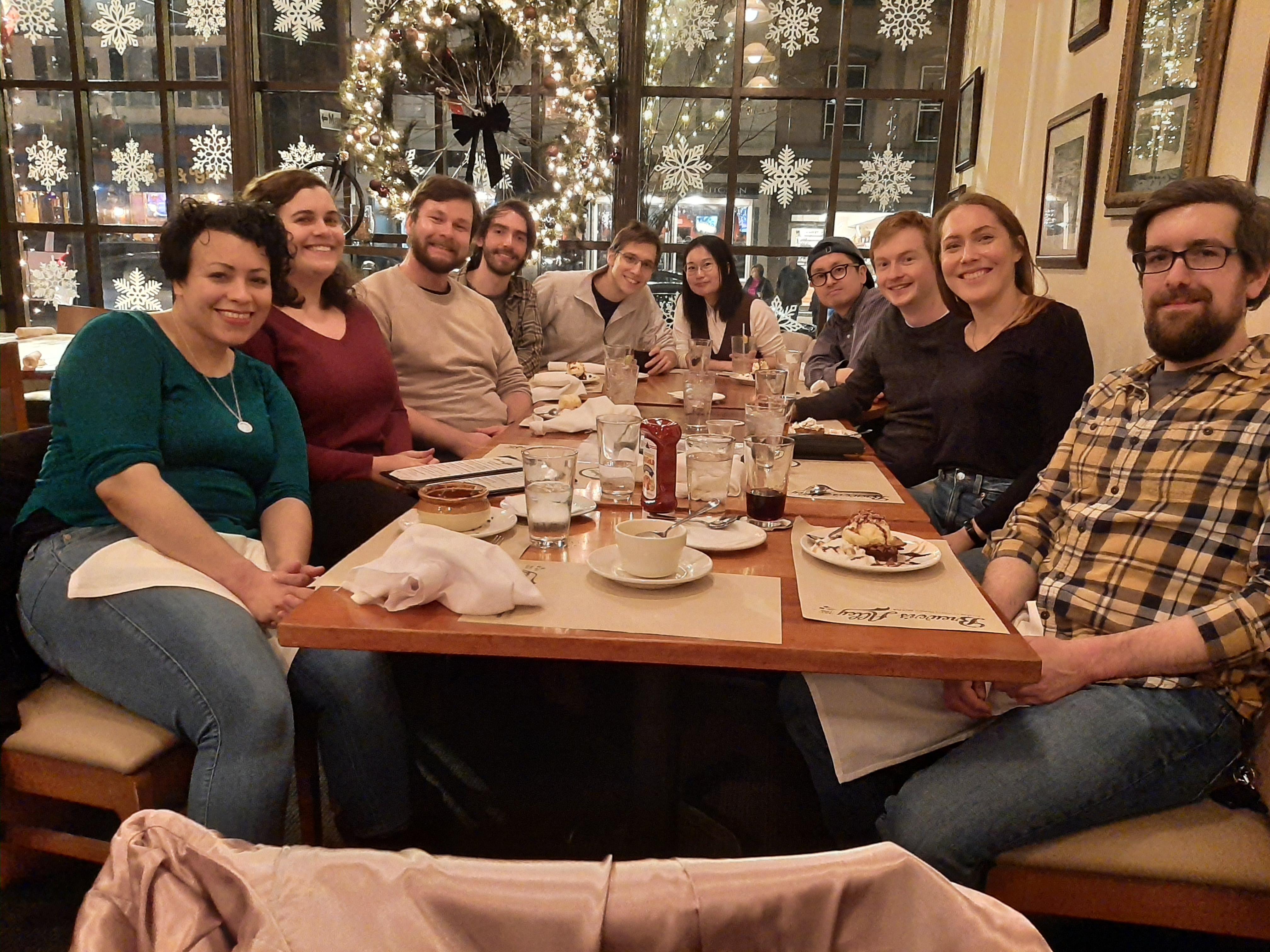
Lab outing to Brewer's Alley in downtown Frederick to celebrate Yevgen's thesis defense.
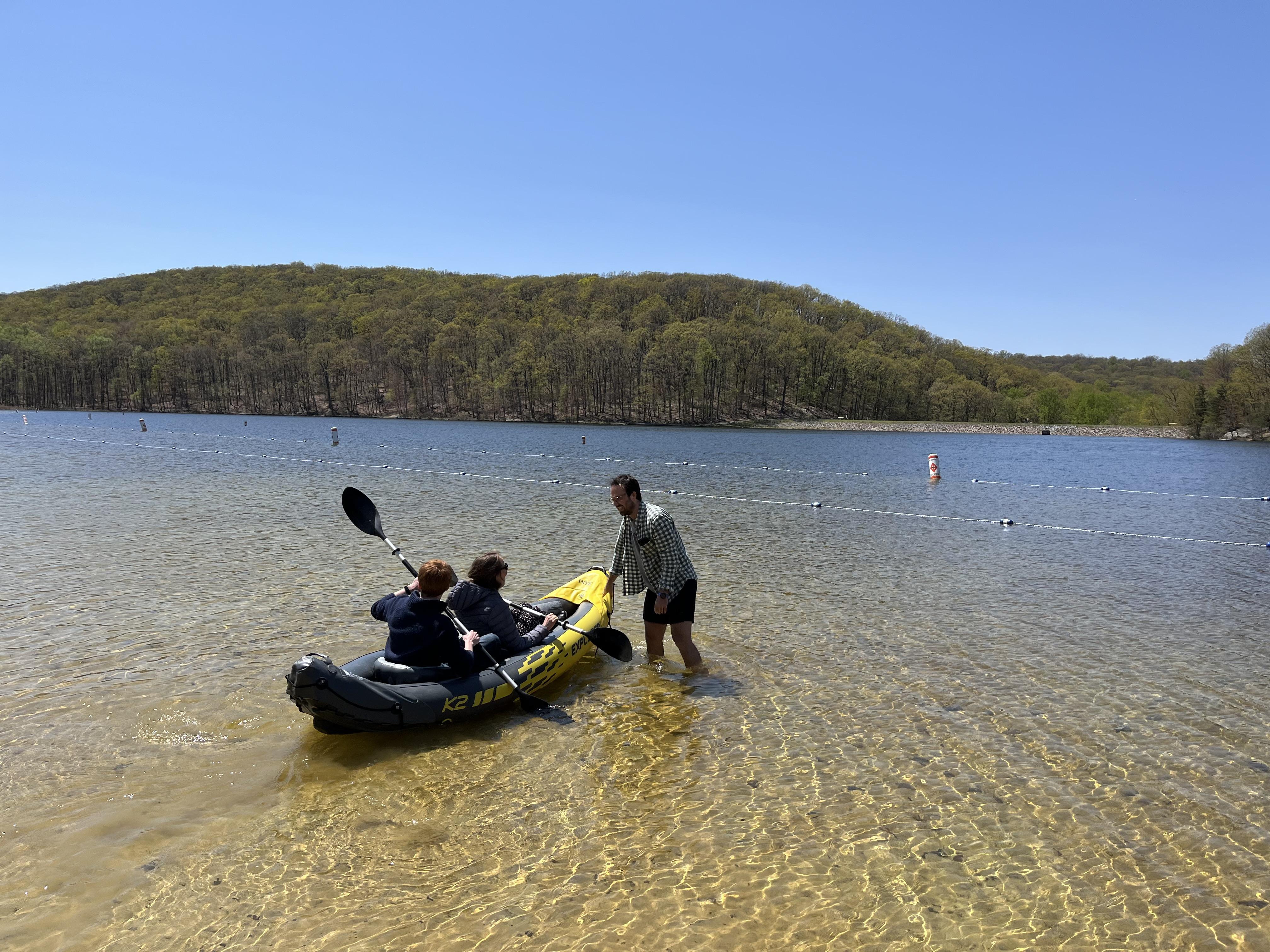
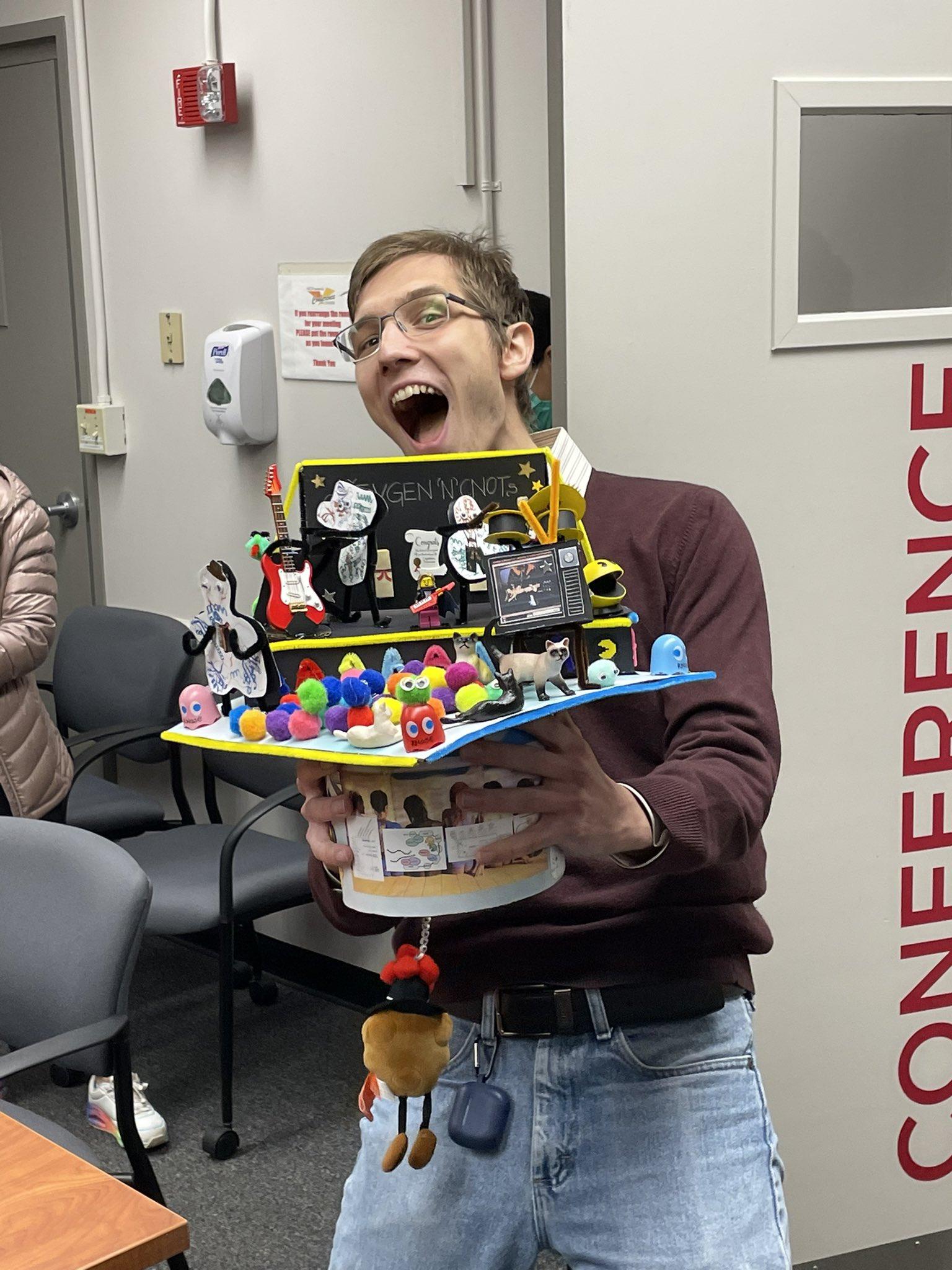
Yevgen was very pleased with his Ph.D. hat after the successful defense of his doctoral thesis.
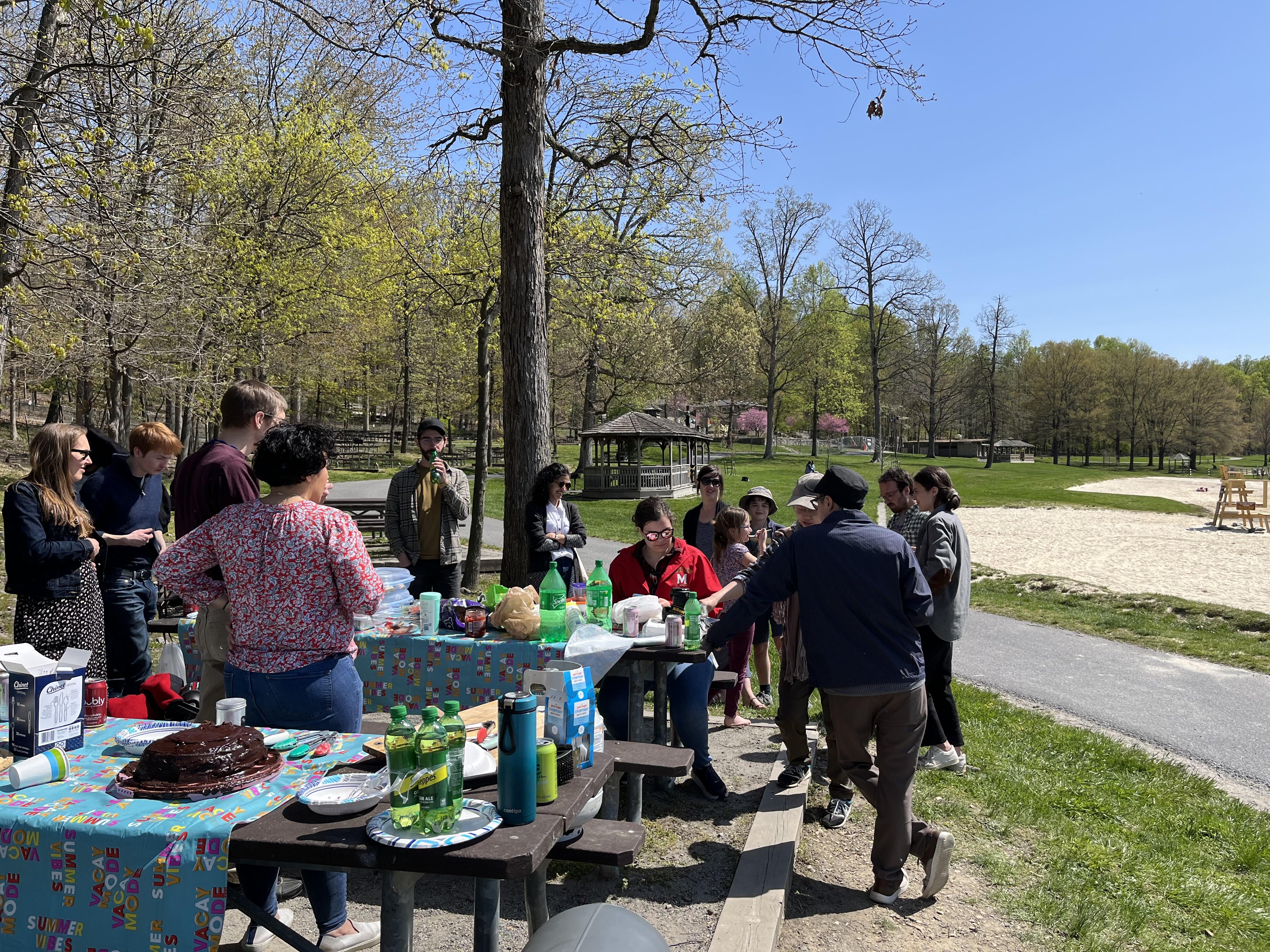
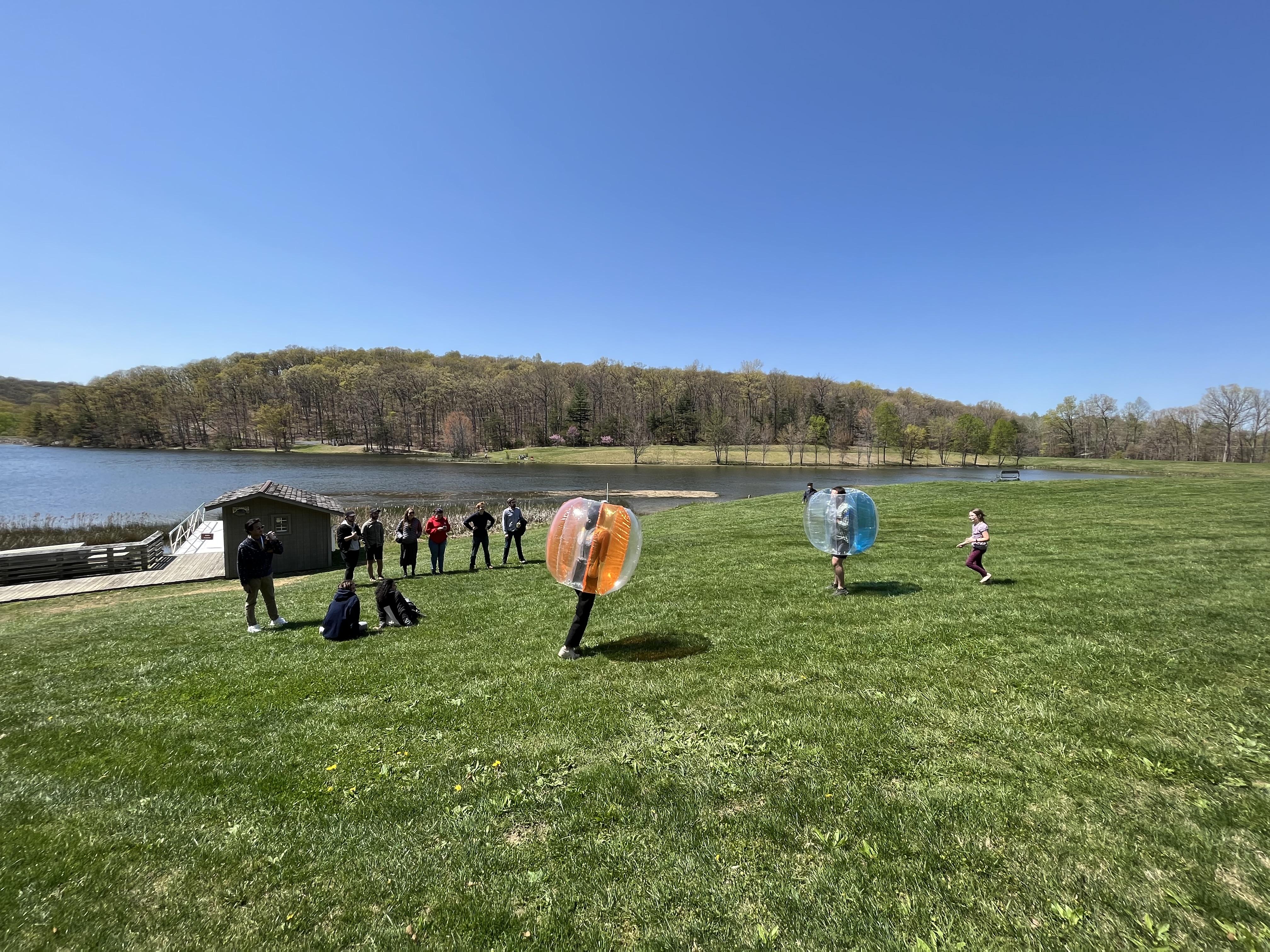
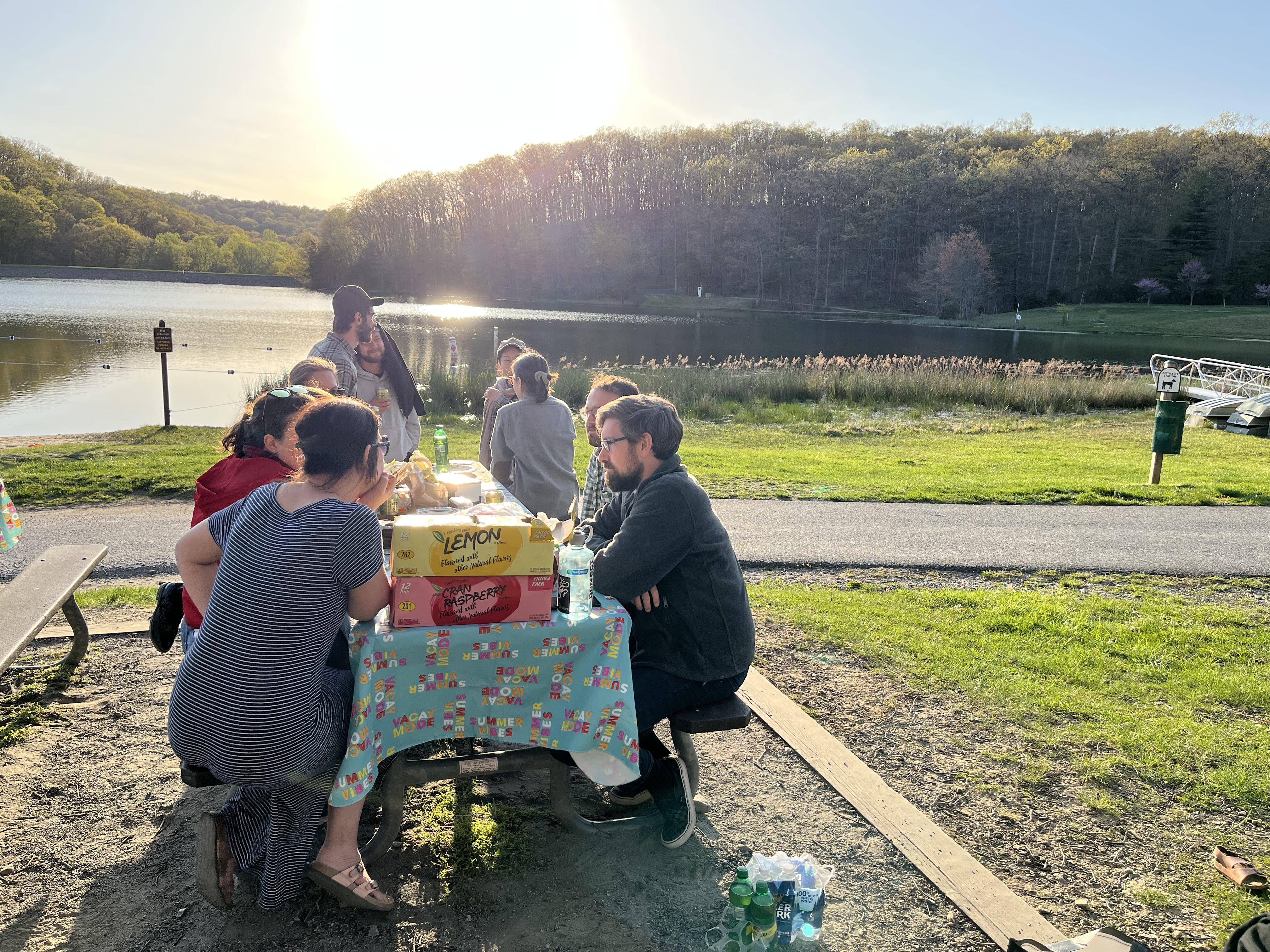
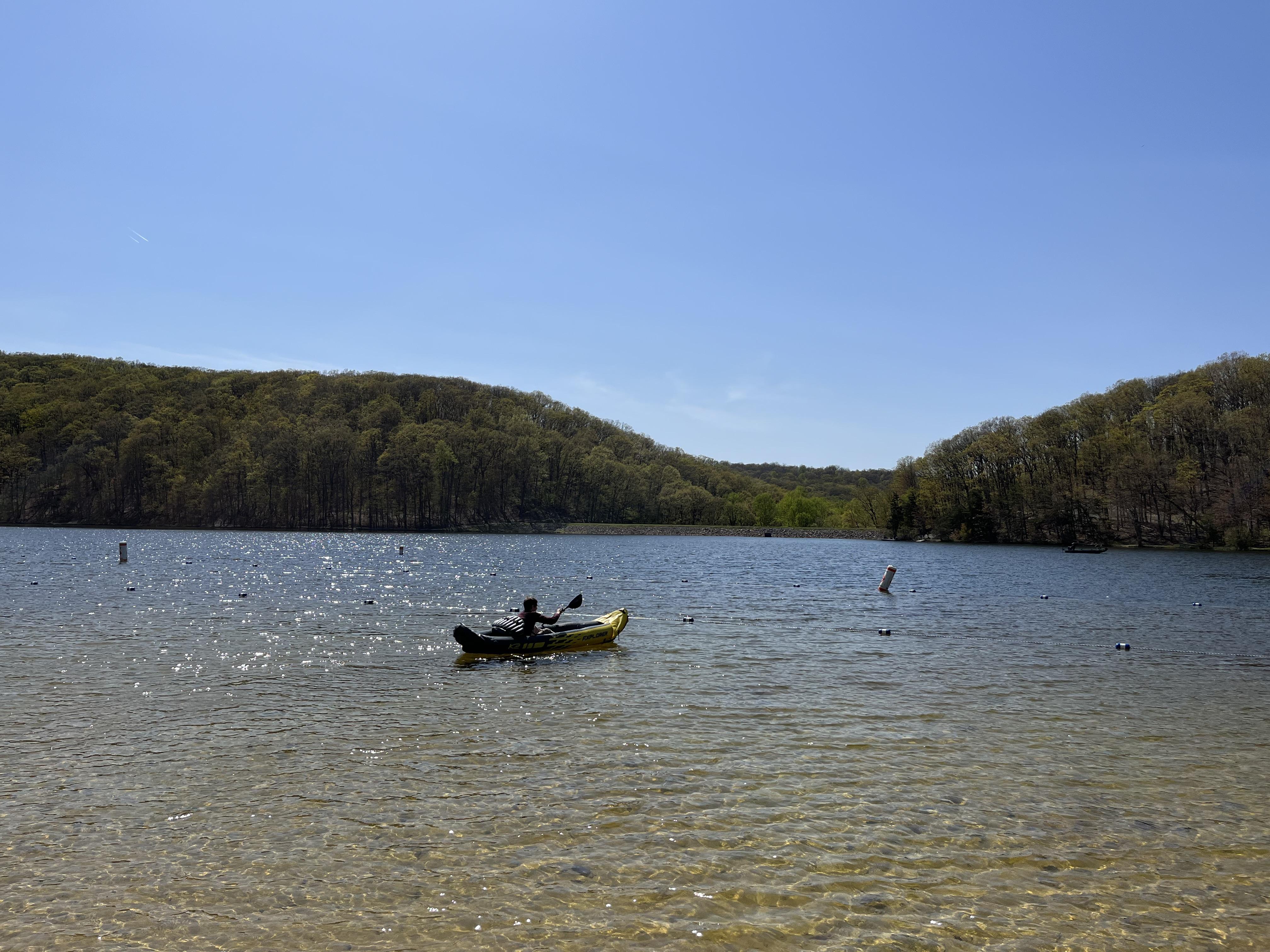

Eugene is part of a sizeable delegation of the NIH intramural community at the annual RNA Society conference in Boulder, Colorado, in June 2022.

Eugene at the FASEB conference on the Post-transcriptional Control of Gene Expression: Mechanisms of RNA Decay in Jupiter, Florida (June 2022).

Late-night discussions at the FASEB meeting in Florida
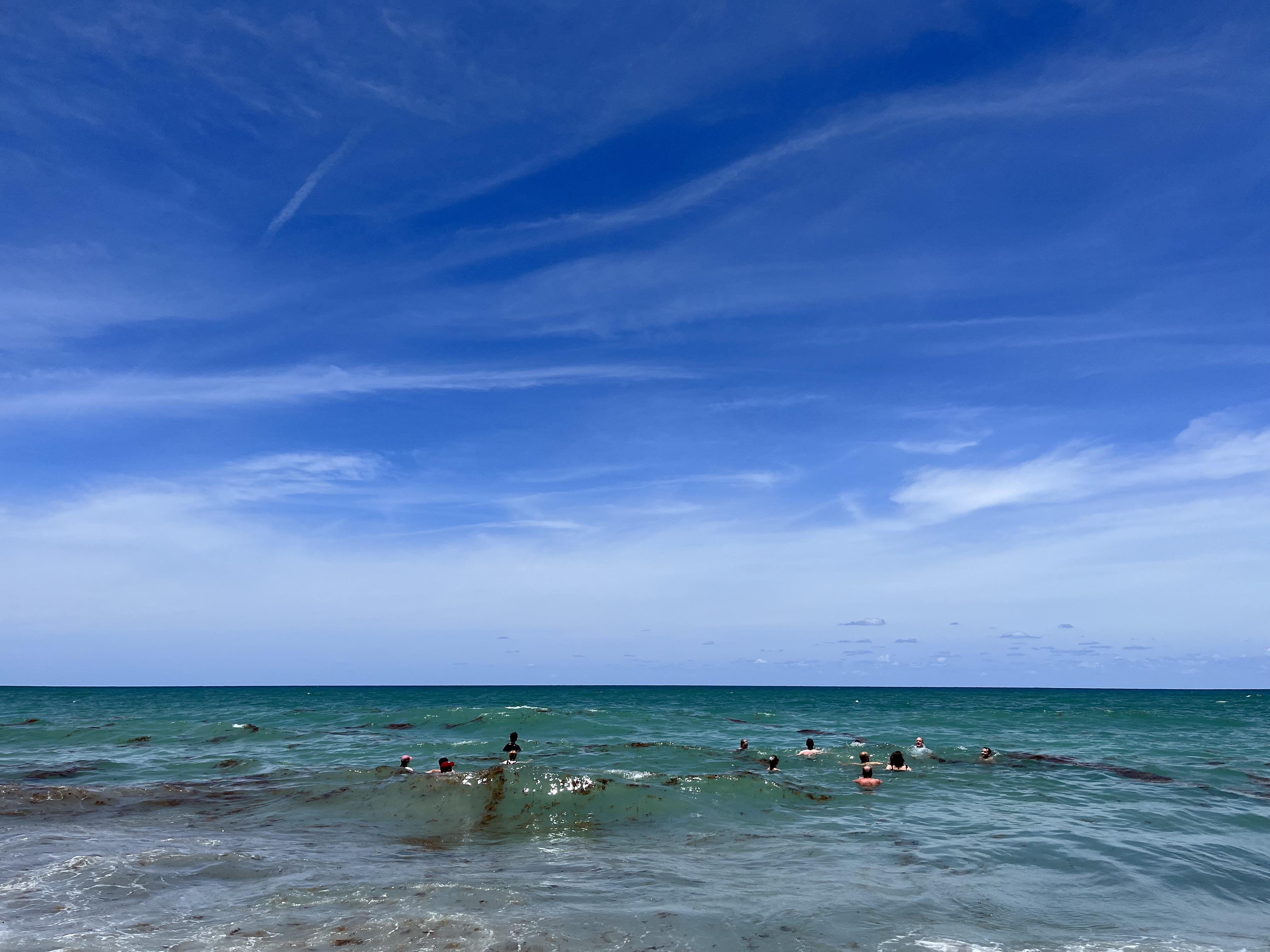
A 'condensate' of RNA biologists swimming during one of the break sessions at FASEB
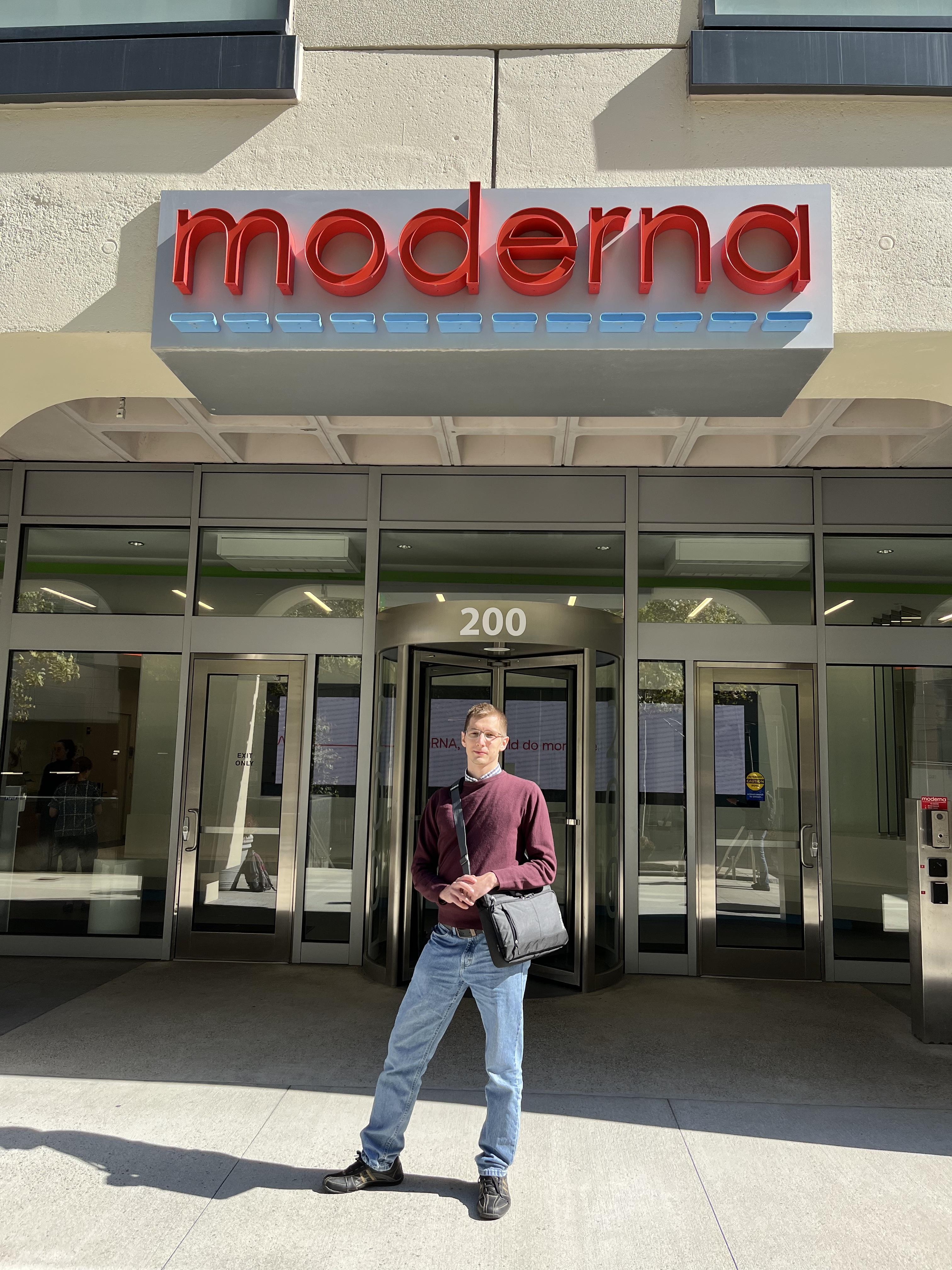
Yevgen outside the Moderna headquarters in Boston during a collaborative visit.
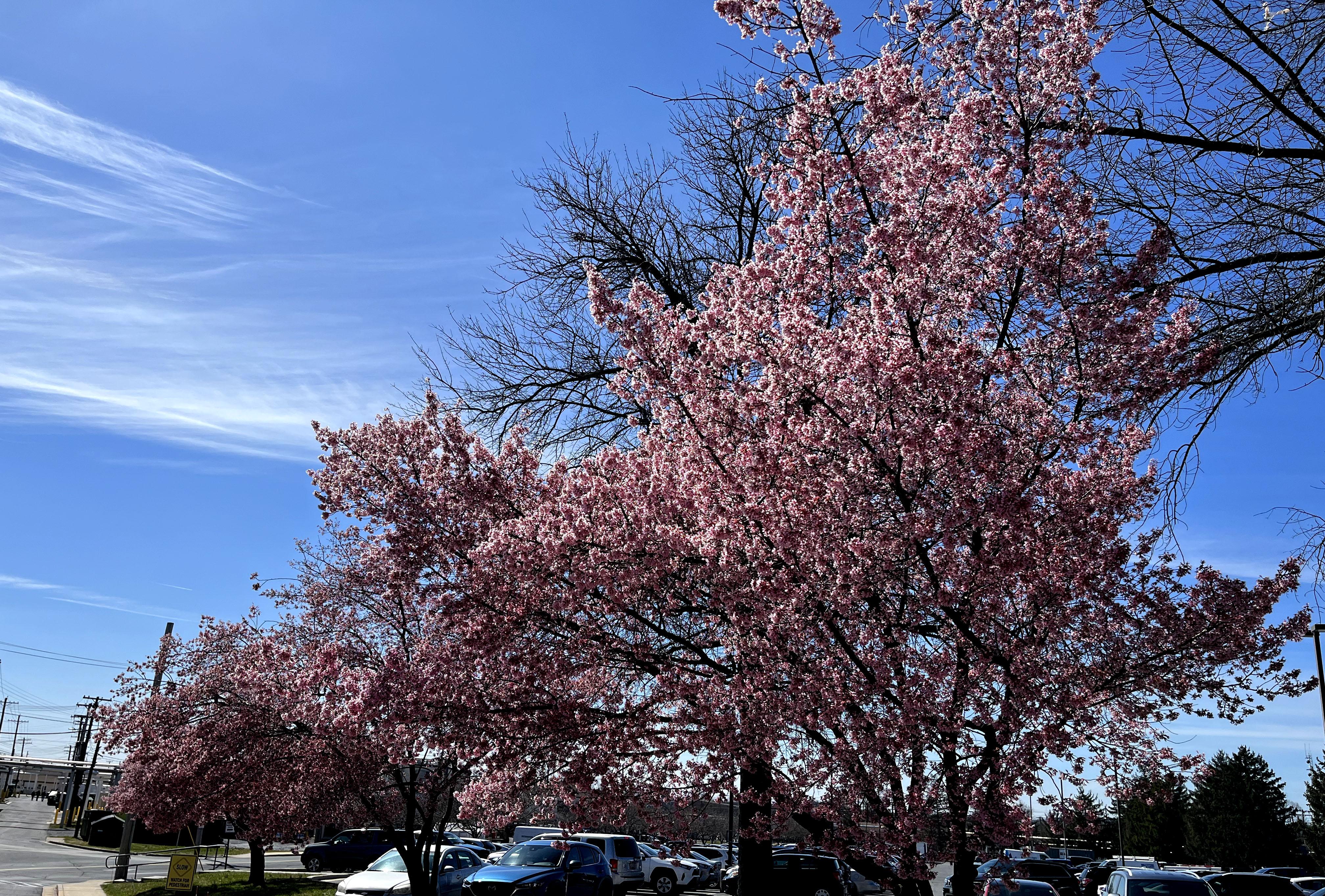
Cherry blossom outside our building on Campus in early March 2023.
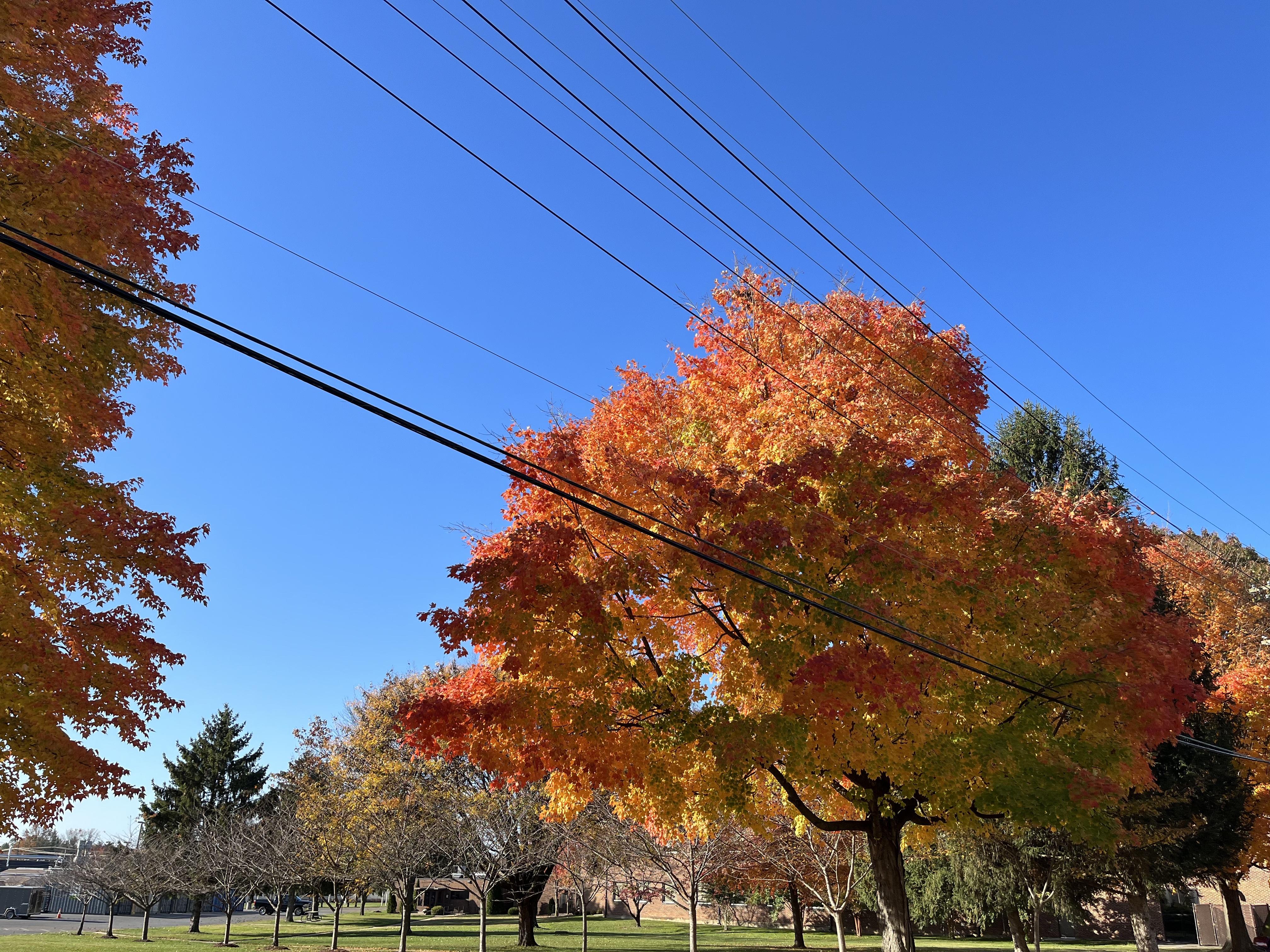
The fall on campus produces some stunning colors among the trees.
Eugene is giving a talk at UC Riverside in March 2023.
